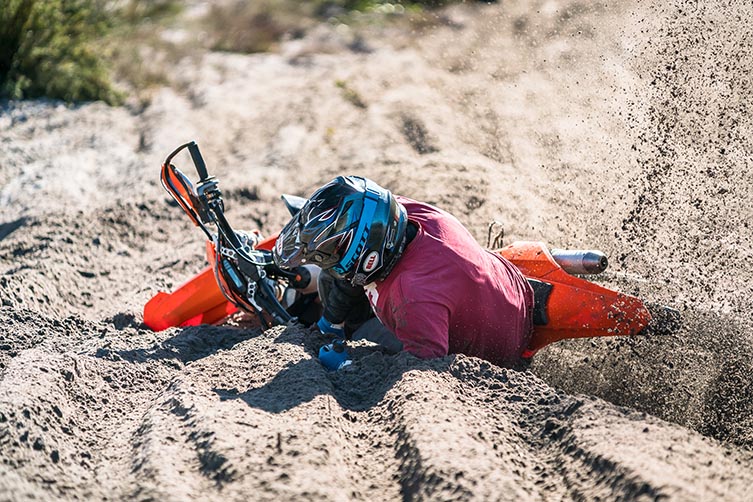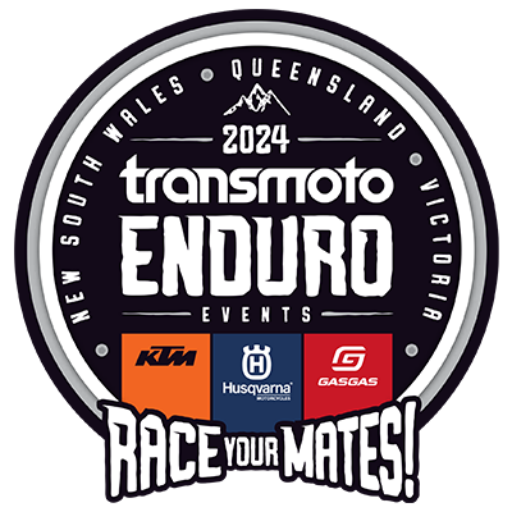The Transmoto 6-Hour at Nabiac was definitely memorable for a couple of reasons. One, it was our first event at this cool Central North NSW Coast venue. And two, the race loop is situated close to the coast and features the sandiest conditions we’ve ever had at a Transmoto Enduro Event.
Aside from the fact that sandy terrain gets rough very quickly after a bit of dirt-bike traffic, it also requires a different approach to both bike set-up and riding style. So if you’re inexperienced when it comes to riding sand, here are 10 basic tips from the Transmoto 6-Hour’s Course Director, Lyndon Heffernan, to help you survive (and enjoy) six gruelling hours in Nabiac’s finest silica…
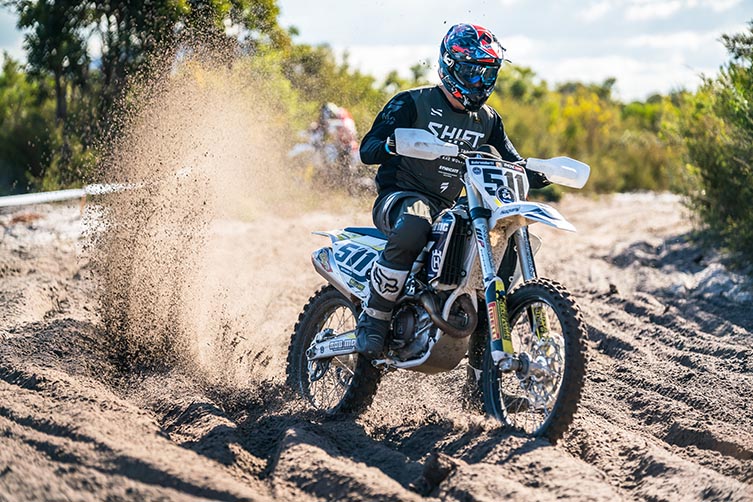
ONE
Sand ruins chains and sprockets, so ensure they are new to start the event. I always use an O- or X-ring chain in sand, and if it is going to be wet (which I doubt), use a steel rear sprocket. They’re a bit heavier than alloy, but much longer wearing.
TWO
Sand also ruins brake pads, especially rear ones, so ensure they are fresh to start the event. Bring spare brake pads if you are riding Ironman, and a solid rear brake disc if is going to be wet.
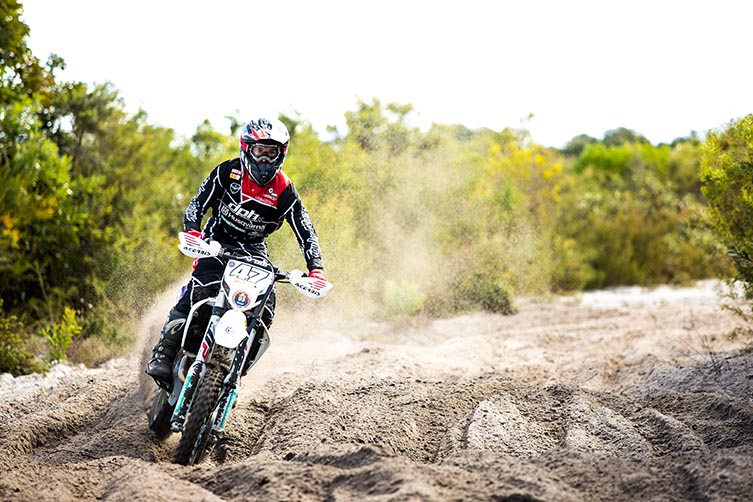
THREE
Sandy conditions generally means there’s not a lot of dust. But it still makes sense to bring a spare air filter or two in case it’s really dry, because some sand can sneak through filters during long races. And that destroys engines!
FOUR
If you’re riding a two-stroke, ensure your jetting is not too lean. You need to rev the bike hard in sand and you don’t want a lean seizure because there is not enough fuel. Consider bringing a bigger mainjet and/or raise the needle (ie, drop the clip) two positions.
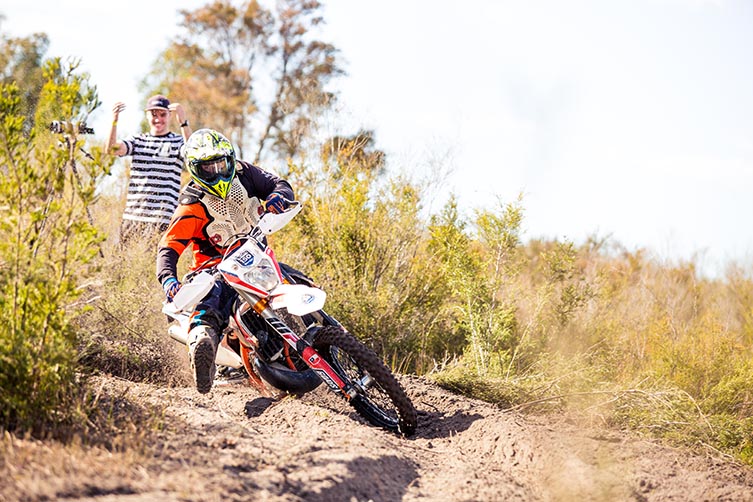
FIVE
Good sand riders float across the terrain, while lesser riders wallow in it. From a riding technique point of view, the most important things are to keep your momentum up, minimise hard braking by easing off the throttle (not chopping it), and accelerating early in corners.
SIX
Sit down and get on the gas a little earlier than you ordinarily would.
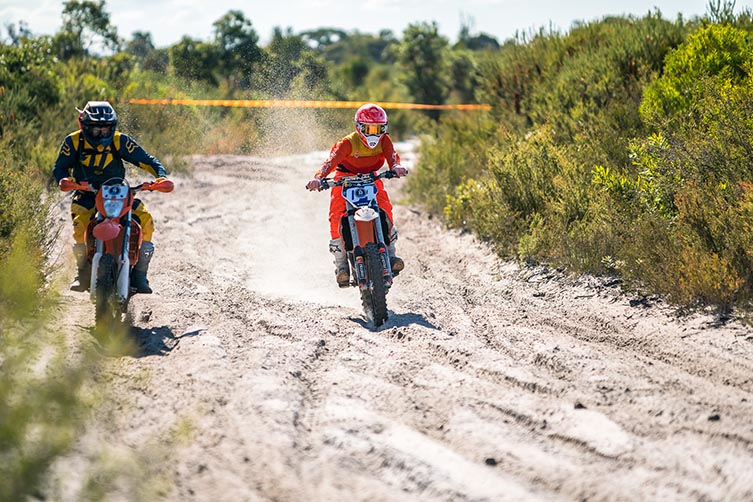
SEVEN
Keep your head back a bit to keep front wheel light. You might even want to roll your handlebars back a tad, ensuring that you adjust brake and clutch levers’ position accordingly.
EIGHT
Stand up lots and wheelie the bumps where you can. Because you stand much more in sandy terrain, some riders like to raise the height of their rear brake pedal a little to suit.
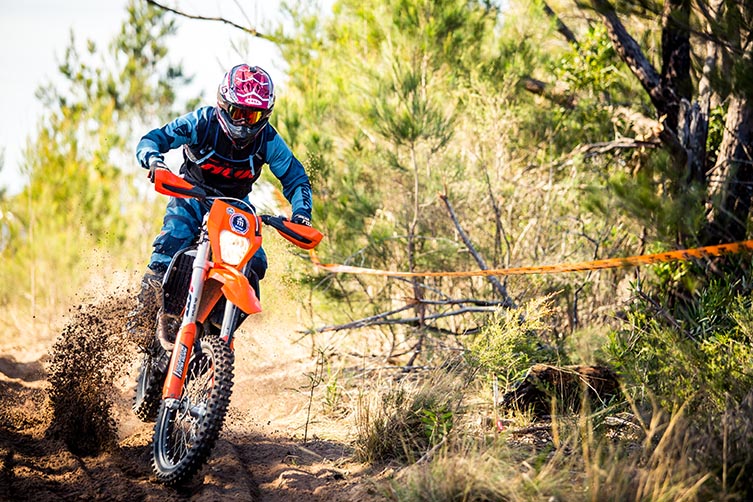
NINE
Jump the whoops when they appear later in the day. It’s less fatiguing on the body that ploughing through them.
TEN
Never go to zero throttle in sand.
